MercoPress. South Atlantic News Agency
Stories for November 20th 2009
-
Saturday, November 21st 2009 - 05:50 UTC
Latinamerican poor to reach 189 million (9 million more) because of recession
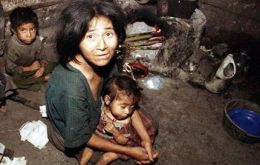
The current global crisis will cause the number of poor people in Latin America to rise by nine million to 189 million this year, the UN Economic Commission for Latin America and the Caribbean (CEPAL) said in a report presented in Santiago de Chile.
-
Saturday, November 21st 2009 - 05:48 UTC
UK apologizes to Spain for “lack of judgement” incident in Gibraltar waters
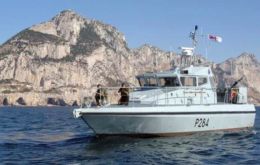
Giles Paxman, Britain's ambassador to Madrid has apologized after the Royal Navy fired on a buoy bearing the red and yellow of the Spanish flag during target practice off Gibraltar.
-
Saturday, November 21st 2009 - 05:43 UTC
Lagos calls for dialogue with the US and admits disappointment with Mercosur
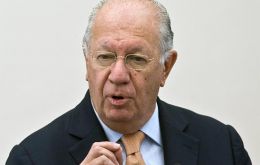
Former Chilean president Ricardo Lagos called for a closer dialogue between Latinamerica and Washington while de-mystifying the alleged negative influence of Venezuelan president Hugo Chavez in the region. He also admitted he expected “much more from Mercosur”.
-
Saturday, November 21st 2009 - 01:53 UTC
Argentina reports a slight drop in hake landings
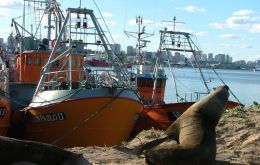
A slight drop in hake landings between January and November compared to the same period a year ago has been registered in Argentina according to official statistics released this week.
-
Friday, November 20th 2009 - 11:55 UTC
“Lack of political stability” weighs on Argentina’s credit ratings

Contentious politics and a lack of political stability are the main factors weighing on the outlook for Argentina's credit ratings, Moody's Investors Services said on Thursday.
-
Friday, November 20th 2009 - 11:52 UTC
US banks “too big to fail” could be dismantled under new legislation
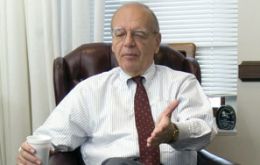
A key US House of Representatives committee has voted to give the government the power to take apart banks that are “too big to fail”. The bill would give a proposed new council of regulators the right to dismantle firms whose scale could hurt the economy - even if they are healthy.
-
Friday, November 20th 2009 - 11:49 UTC
US construction industry and housing market remain stagnant

Construction of new homes in the United States fell sharply last month, showing potential weakness in the economy's recovery, while consumer prices rose slightly more than expected.
-
Friday, November 20th 2009 - 10:35 UTC
Compromise candidates for EU president and Foreign policy chief
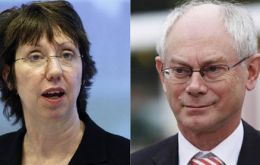
European Union leaders have opted for little-known compromise candidate, Belgium premier Herman Van Rompuy, to become the bloc's first full-time president, diplomats have said.
-
Friday, November 20th 2009 - 10:29 UTC
Papua New Guinea cannibal tribe could hold clue to “mad cow disease”

Darwinian natural selection could help halt human “mad cow disease”, experts say after finding a tribe impervious to a related fatal brain disorder. The Papua New Guinea tribe developed strong genetic resistance after a major epidemic of the CJD-like disease, kuru, spread mostly by cannibalism.
-
Friday, November 20th 2009 - 09:55 UTC
Brazil, Peru and Uruguay in “boom phase recovery”

The Economic Climate Index (ECI) in Latin America, (developed in partnership between the German Ifo Institute and Brazil’s Getulio Vargas Foundation) rose to 5.2 from 4.0 points between July and October 2009, exceeding for the first time since January 2008, the average of the last ten years (5.1 points).
